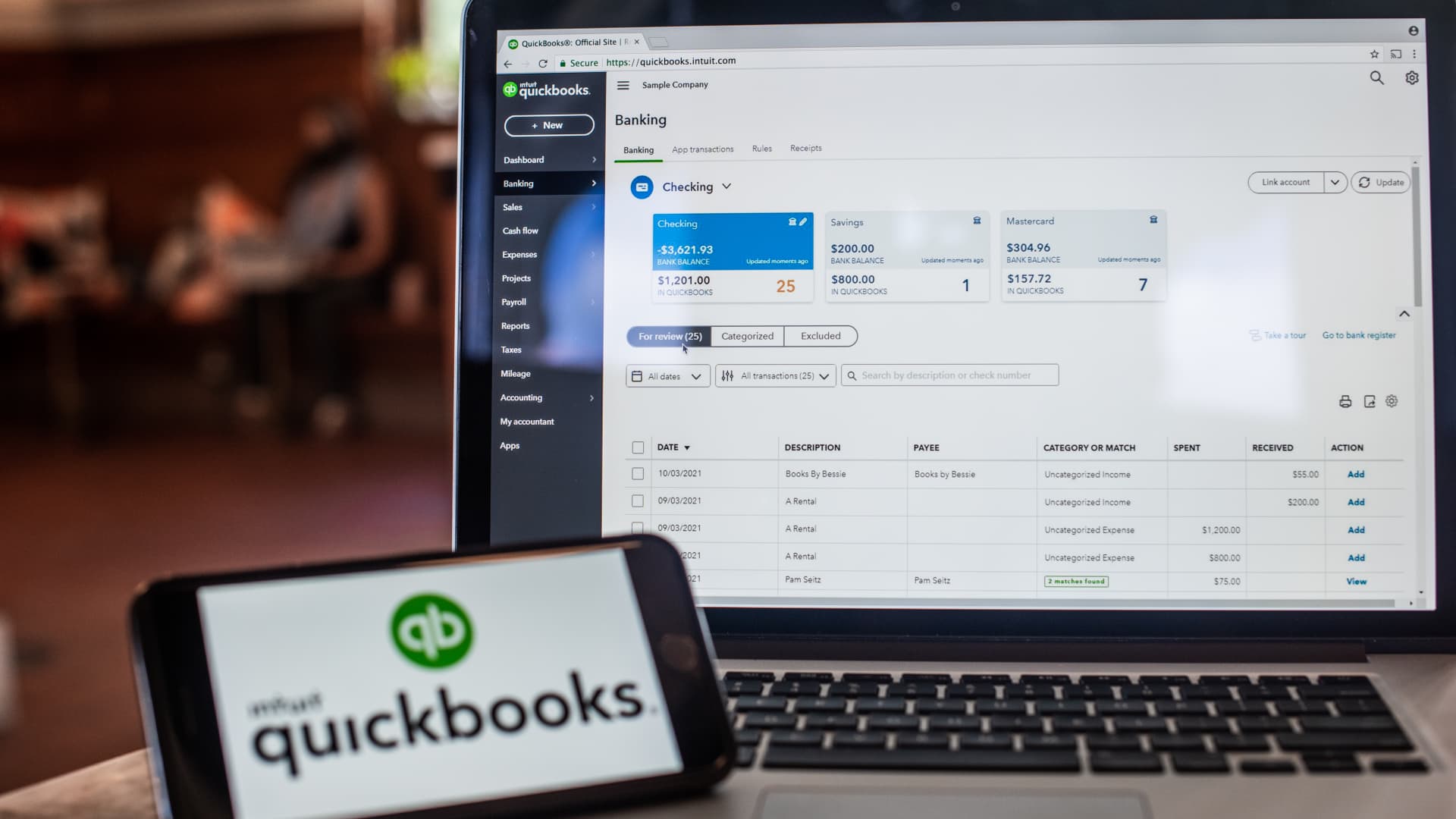Intuit Surprises Wall Street with Stellar Earnings and Bold Outlook
Intuit Inc. (NASDAQ: INTU) delivered a stunning earnings beat on Thursday, May 23, 2024, exceeding analyst expectations amid a strong tax season and robust demand for its financial software solutions. The Mountain View-based company reported $6.74 billion in revenue for Q3 2024—a 12% year-over-year increase—while raising its full-year guidance, signaling confidence in sustained growth across its TurboTax, QuickBooks, and Credit Karma platforms.
Strong Tax Season Fuels Revenue Surge
Intuit’s performance was largely driven by its Consumer Group segment, where revenue jumped 9% to $3.5 billion. The company processed approximately 21% more TurboTax returns this season compared to 2023, capitalizing on:
- Expanded adoption of its AI-driven tax filing assistance
- Successful pricing strategies for premium services
- Increased market share in the DIY tax preparation space
“This was a textbook example of execution excellence,” said Marianna Wu, financial technology analyst at Bernstein. “Intuit didn’t just benefit from seasonal tailwinds—they’ve systematically improved customer retention while growing their addressable market.”
Small Business Solutions Show Momentum
The Small Business & Self-Employed Group posted even stronger results with $2.1 billion in revenue (up 18% YoY), as QuickBooks Online subscribers grew to 5.8 million—a 15% increase. Key drivers included:
- Rapid adoption of QuickBooks Advanced (50,000+ subscribers)
- 21% growth in international subscribers
- Expanding merchant payment volumes ($52 billion processed, up 13%)
“Small businesses are increasingly viewing Intuit as an operating system rather than just accounting software,” noted CEO Sasan Goodarzi during the earnings call. “Our AI-powered tools like Intuit Assist are driving unprecedented engagement, with customers completing 30% more tasks per session.”
Credit Karma Delivers Surprise Profitability
Perhaps the most unexpected bright spot came from Credit Karma, which achieved profitability for the first time since Intuit’s $8.1 billion acquisition in 2020. The unit generated $1.2 billion in revenue (up 8%) through:
- Expanded personal loan marketplace (originations up 22%)
- Growth in auto insurance referrals (1.3 million policies placed)
- Successful monetization of 23 million monthly active users
“Credit Karma’s turnaround demonstrates Intuit’s ability to integrate acquisitions while maintaining innovation,” observed Thomas Park, fintech specialist at Forrester Research. “Their vertical integration strategy—connecting credit monitoring with tax prep and small business services—creates powerful network effects.”
AI Investments Begin Paying Dividends
Management highlighted that artificial intelligence now touches nearly every product line, with notable implementations including:
- TurboTax Live Assisted: AI matches filers with ideal tax experts, reducing wait times by 40%
- QuickBooks Cash Flow Planner: Machine learning predicts shortfalls with 92% accuracy
- Marketing Solutions: Generative AI creates performant ad copy for SMB clients
The company reported deploying over 50 new AI features in the past year, contributing to a 120 basis point improvement in gross margins through operational efficiencies.
Raised Guidance Signals Confidence
Intuit now projects full-year revenue between $16.05-$16.25 billion (up from $15.9-$16.1 billion) and adjusted EPS of $16.79-$17.09 (versus prior $16.17-$16.47). The bullish outlook reflects:
- Early success in the 2025 tax season preparation
- Strong pipeline for QuickBooks Enterprise solutions
- Accelerating international expansion (particularly in the UK and Australia)
However, some analysts expressed caution. “While execution has been flawless, valuation at 45x forward earnings leaves little room for error,” warned David Lin from UBS. “Consumer sentiment shifts or regulatory scrutiny of AI implementations could present headwinds.”
What’s Next for Intuit?
The company plans to continue its “AI-driven expert platform” strategy with three clear priorities:
- Deepening ecosystem integrations between tax, accounting, and personal finance products
- Expanding globally through localized versions of QuickBooks
- Developing industry-specific solutions for verticals like healthcare and construction
As Intuit demonstrates its ability to thrive in both strong and challenging economic environments, investors appear increasingly convinced of its transition from a tax-season-dependent business to a year-round financial operating system. The company will host its annual Investor Day on June 12, where further details about its 2025 roadmap are expected.
For those tracking Intuit’s continued evolution, the company’s next earnings report on August 22 may provide critical insights into whether this growth momentum can be sustained through traditionally slower quarters.
See more Business Focus Insider Team

